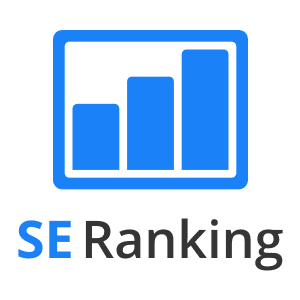Imagine having the keys to unlock the full potential of your website. What if you could measure its success and know exactly where to focus your efforts for maximum impact?
Website success metrics and tools for measuring

That’s precisely what website success metrics can do for you – they give you a deep understanding of your website’s performance. From the number of visitors to their behavior to the effectiveness of your marketing campaigns, with the right metrics, you’ll be able to optimize your website for
- higher conversion rates,
- greater engagement, and
- an overall more successful online presence.
So, buckle up and get ready to take your website to the next level with website success metrics!
Table of Content
- Website success is measured by how well it…
- 9 most important website success metrics to measure and monitor
- Which tool helps you measure the success of your website – list of 6
- 3 Free tools to measure website success
- 3 Paid tools to measure website success metrics (with prices)
- Which tools to choose to measure the success of your website?
Website success is measured by how well it ...

You probably measure your website’s success by how many calls, purchases, members, clients, etc., it generates. There are precise website success metrics to express and follow the growth (or decline) of your online presence.
Website success is measured by how well it:
- ranks in SERP (for targeted keywords),
- attracts visitors,
- how long visitors stay on the web pages,
- how much visitors explore, and
- (most importantly) how high is the conversion rate (website’s goal completion).
SERP ranking
A website’s ranking on the search engine results page (SERP) is one of the key website success metrics.
A high ranking indicates that the website has relevance and authority in the eyes of the search engine, which translates to better visibility and more traffic.
To achieve a high SERP rank, it’s vital to implement the best search engine optimization (SEO) practices, such as
- keyword research,
- on-page SEO optimization,
- link building, and
- user experience optimization.

Click-provoking titles
When the website appears in SERP, the title of a website’s page is crucial in attracting visitors and enticing them to click. A compelling title that accurately reflects the page’s content can help increase click-through rates and reduce scrolling over the listed websites for a particular keyword.
Titles should be concise, descriptive, and include relevant keywords. They shouldn’t be longer than 60 characters.
The second factor when internet users decide whether to click on the website’s link listed in SERP is the meta description. Meta description is short (160 characters) text just below the title.
Time spent on the website site
The time a visitor spends on a website is another important website success metric. A high average time on the website indicates that visitors are engaged with the content, finding it useful.
To increase time on site, websites should:
- in less than 3 seconds, convince visitors that their problem will be solved, or desire satisfied,
- provide unique, valuable, and relevant content,
- have a powerful Hero section on each page and post,
- be easy to navigate,
- tell visitors what to do next (call-to-action buttons),
- have a clean and user-friendly design, and
- load fast.

Exploration
The amount of exploration a visitor does on a website is another factor that contributes to success. A high level of exploration indicates that the visitor is interested in the content and finds it relevant to their needs.
To encourage exploration, your website must have a clear and intuitive navigation structure, internal links to related content, and original, valuable, engaging content.
Conversion rate
A website’s conversion rate is the most important website success metric. A high conversion rate means visitors are taking a desired action (making a purchase or filling out a form), ultimately leading to business growth.
You built your website with one goal. The higher the conversion rate, the better your website serves you.
If you are a service business owner, the conversion rate is the number of new clients that called to hire you (compared to the total visitor number).
If you run an eCommerce website, the number of completed purchases compared to total visits will show you how successful your online store is.
To increase conversion rates, websites should have
- enticing and imaginative call-to-action (CAT) buttons,
- a user-friendly checkout process, and
- trust signals, such as customer reviews and secure payment options.
9 most important website success metrics

Based on our experience, nine most important website success metrics the website owner should follow are:
- Domain authority (DA)
- Bounce rate (Engagement)
- Pages per session
- Session duration
- Conversion rate
- Revenue
- Traffic sources
- SEO ranking
- Mobile traffic
- Domain authority (DA):Domain Authority (DA) is a metric that predicts the strength and popularity of a website, and it is used by search engines to rank websites in search results. It is developed and trademarked by Moz, a leading SEO (Search Engine Optimization) company.
A website’s Domain Authority score ranges from 0 to 100, with higher scores indicating a greater ability to rank on search engines. The score is calculated based on various factors, including the number and quality of links pointing to a website, the age of the domain, and the content on the website.
A website with a high DA score is an authority in its industry, and therefore, it is more likely to rank on the first page in search results. For example, here is the list of websites with the highest DA:- Google.com – DA 100
- Facebook.com – DA 100
- YouTube.com – DA 100
- Amazon.com – DA 96
- Wikipedia.org – DA 92
- Bounce rate: the percentage of visitors who leave the site after visiting only one page.
- User engagement rate: NEW in GA4! 😢 – reciprocal value with respect to bounce rate (1/bounce rate). Since July 2023. standard “old” Google Analytics will cease to exist, and we’ll be left only with Google Analytics 4 (GA4). In GA4, the bounce rate doesn’t exist anymore. It’s replaced with an engagement rate.
- Pages per session: the average number of pages viewed per session (per one visitor), which can indicate engagement and interest in the site’s content.
- Session duration: the average time spent on the site per session can be used to gauge engagement and interest.
- Conversion rate: the percentage of visitors who complete a desired action, such as making a purchase or filling out a form.
- Lead generation: the number of leads generated through the website, such as contact form submissions or newsletter sign-ups (the same as the conversion rate, but in numbers, while the conversion rate is a percentage).
- Revenue: the total amount of money generated from the website, including sales, advertising, and other sources
- Traffic sources: the sources of traffic to the website, including search engines, referral sites, social media, and direct visits.
- Search engine ranking: the website’s position in search engine results for relevant keywords can impact visibility and traffic.
- Mobile traffic: the percentage of website traffic that comes from mobile devices, which is important to track as mobile usage continues to grow
Which tool helps you measure the success of your website

Free tools are:
- Google Analytics
- Google Search Console
- Matomo (ex. Piwik)
Paid tools with limited free plans:
- Semrush
- SE Ranking
- Ahrefs
Free tools to measure the success of your website

GA tracks and reports website traffic. It provides insights into how users interact with your website, including:
- the number of visitors,
- the source of their traffic, and
- the pages they visit.
One of the key features of Google Analytics is its ability to track conversions, defined as specific actions that a user takes on a website. These actions could be anything from purchasing to filling out a form.
By tracking conversions, website owners can gain insights into which marketing efforts are most effective in driving traffic and converting visitors into customers.
Google Analytics also provides a wealth of data about a website’s audience, including demographics, location, and device usage.
Conclusion: you can benefit from Google Analytics to tailor your website’s content and marketing efforts to better meet the needs of your targeted audience. GA metrics helps you achieve your online business goals.
Google Search Console is a free tool offered by Google to help you monitor and measure a website’s ranking in Google Search results.
With Google Search Console, you can track your website’s
- search performance,
- the number of clicks,
- impressions,
- the average click-through-rate,
- the number of queries that drive traffic to your site,
- most popular pages,
- the number of people coming to your website from Google SERPs.
Additionally, Google Search Console provides valuable insights into technical issues that might affect your website’s visibility in search results.
Problems you can track with GSC are:
- crawl errors,
- security issues,
- mobile compatibility
- missing schema code
- incomplete information (eCommerce data).
GSC metrics will show you which problems your website has and point you to how to fix them. You’ll get an email each time GSC crawls your website and discover an issue hindering performance in search results.
GSC helps improve your website’s search ranking and drive more organic traffic.
With Matomo, you can track important metrics such as:
- page views,
- unique visitors,
- bounce rate,
- conversion rate
- time on site
- custom event tracking, etc.
Thirdly, Matomo provides data privacy and protection, allowing you to control who has access to your website’s analytics data.
Conclusion: Matomo gives you valuable insights into your website’s performance and a better understanding of how visitors engage with your content.
All mentioned information helps you make informed decisions about website improvements, content creation, and marketing strategies leading to your goal achievement.
Paid tools (with free plans) for measuring website success
If you decide to invest money and purchase an SEO tool to improve your website ranking, we recommend one of these three:
- Semrush
- SE Ranking
- Ahrefs
The order we listed them doesn’t determine their value. All three are comprehensive, informative, and great for keyword research, rank tracking, and creating good marketing campaigns.

Semrush is a comprehensive SEO tool that helps improve search engine rankings and drive more organic traffic to your site.
With Semrush, you can track your website’s
- search performance,
- keyword rankings,
- backlinks, and
- organic search traffic.
You can also:
- conduct in-depth keyword research,
- analyze your competitors’ SEO strategies, and
- identify opportunities to improve your SEO.
Semrush also offers a range of tools for on-page optimization, such as
- site audits to identify technical SEO issues,
- content audits to help you optimize your website’s content for search engines.
With Semrush, you can gain a competitive edge in your SEO efforts, stay on top of industry trends, and make data-driven decisions to improve your website’s visibility in search results.
Semrush prices
Semrush offers a very limited free plan where you can track your overall success. If you want to track listed metrics and use all useful features, you’ll have to pay $120 monthly, or $1200 yearly, meaning, with a yearly plan you save $240.

SE Ranking tools include:
- keyword research and analysis
- backlink monitoring
- competitor analysis,
- website analytics,
- SEO rankings
- visibility monitoring,
- on-page optimization analysis
A keyword research tool allows users to identify the best keywords for their website and monitor their performance over time. The tool provides detailed information on keyword competition, search volume, and estimated traffic, helping users to make informed decisions about THE keyword strategy.
The Backlink monitoring tool provides information on a website’s number and quality of backlinks. This information can be used to identify and address any potential backlink issues (such as toxic backlinks that damage the ranking), and to inform and improve link-building strategies.
The competitor analysis tool provides insights into competitors’ websites, their strengths, and weaknesses, thus helping users stay ahead of the competition.
Analytical tools provide valuable insights into a website’s performance, allowing users to identify areas for improvement and track their progress over time. Overall, SE Ranking is a comprehensive and user-friendly SEO platform with lower prices than other tools.
SE Ranking prices
There is a free plan for one project (website) with weekly or monthly automated email reports. If you own up to 10 websites and want deeper insights, consider subscribing to an Essential package. It’s $39 monthly, or $31,20 yearly ($93,60 saving).
Ahrefs is a powerful SEO and backlink analysis tool with a vast database of over 20 trillion backlinks,
Ahrefs provides detailed insights into the backlink profile of any website, including the number and quality of links, anchor text, and referring domains. This information can be used to create or/and improve link-building strategies.
Ahrefs also offers a range of other SEO tools, including
- keyword research and analysis,
- competitor research,
- site explorer,
- content explorer,
- organic search traffic,
- ranking data
The keyword research tool allows users to find and analyze the best keywords for content creation, titles, and all SEO techniques.
The competitor research tool provides detailed insights into the strengths and weaknesses of competitor websites.
The site explorer and content explorer tools help users to analyze the top-performing pages and content across the web, thus giving a solid starting point for content marketing strategy.
There are dozens of excellent educational videos on YouTube about using Ahrefs, with limitless ideas and directions for optimal marketing results and top rankings.
Ahrefs prices
Ahrefs offers a limited free plan. You can create up to 3 websites and get weekly emails with the most important issues. Also, you’ll have the basic insights into:
- domain rating (similar to Domain Authority, but it’s an internal website success metric)
- number of referring domains
- number of backlinks
- organic traffic (approximate website success metrics calculated based on the estimated monthly organic traffic converted into paid traffic – as the organic traffic was paid)
- number of keywords the website ranks for (but not which keywords the site ranks)
- countries from which the traffic comes from
If you need deeper website success metrics or a powerful and very accurate keyword research tool, you’ll have to pay. There are two paid plans:
- Lite $99/month, or $990/year ($198 saving)
- Standard $199/month, or $1990/year ($398 saving)

CONCLUSION about three paid tools for measuring website success metrics:
Functionality: All three tools offer a range of SEO and digital marketing features, including keyword research, site audit, backlink analysis, and competitor analysis. However, Ahrefs is known for its robust backlink analysis capabilities, while SEMrush offers more comprehensive content marketing tools.
Price: SE Ranking is a more cost-effective option, focusing on core SEO features.
Data: All three tools have large databases of keywords and backlinks, but Ahrefs has the largest and most up-to-date backlinks database. Based on one study (Best SEO Tools 2023 – Tested and Compared), Semrush and Ahrefs are the most precise in keyword analysis.
User interface: Ahrefs and SEMrush have modern, user-friendly interfaces, while SE Ranking has a more traditional design. Some users may find Ahrefs and SEMrush to be more intuitive, while others may prefer the layout and interface of SE Ranking.
Customer support: All three tools offer customer support, including online documentation, email support, and live chat support.
Since this overview is not too helpful when deciding which tools to use to measure website success metrics, we give you some recommendations below based on our years of SEO and website improvement projects.
Which tools to choose to measure the success of your website

Recommendation when choosing website success metrics and tools to measure them:
- Connect your website with Google Analytics and Google Search Console. Keep in mind that Universal Google Analytics will cease to function in July 2023. When making an account, choose Google Analytics 4.
- If your website is built on WordPress, install the free SEO plugin Rank Math.
- Connect Rank Math with GA4 and GSC.
- To use the full potential of Google Analytics 4, learn more about it, and about Google Tag Manager. There are great educational videos on YouTube.
- Make accounts on Ahrefs, Semrush, and SE Ranking and choose free plans.
- Spend some time exploring the latest three SEO tools to see which one you prefer.
- After some time, decide if you will invest money into any paid tool.
Based on our experience, most website owners don’t have time to learn about SEO, keyword research, website success metrics, and tools for measuring.
If you run a business, your time will be best spent doing that. Choosing the best website success metrics and measuring tools is not easy.
To make informed decisions about marketing strategy, website improvements, and investments in your online presence, we recommend you consult or hire an expert.
Time and time again, we were hired to fix mistakes website owners made doing SEO based on incomplete knowledge and data. They spent ten times more money than they would initially invest.

To avoid costly mistakes, please contact us for consultation; we’ll be happy to help.
Send us an email or message us on WhatsApp.
Natasa will answer in less than 24 hours and help you choose optimal website success metrics for your goals and measuring tools based on your budget, energy and time.
